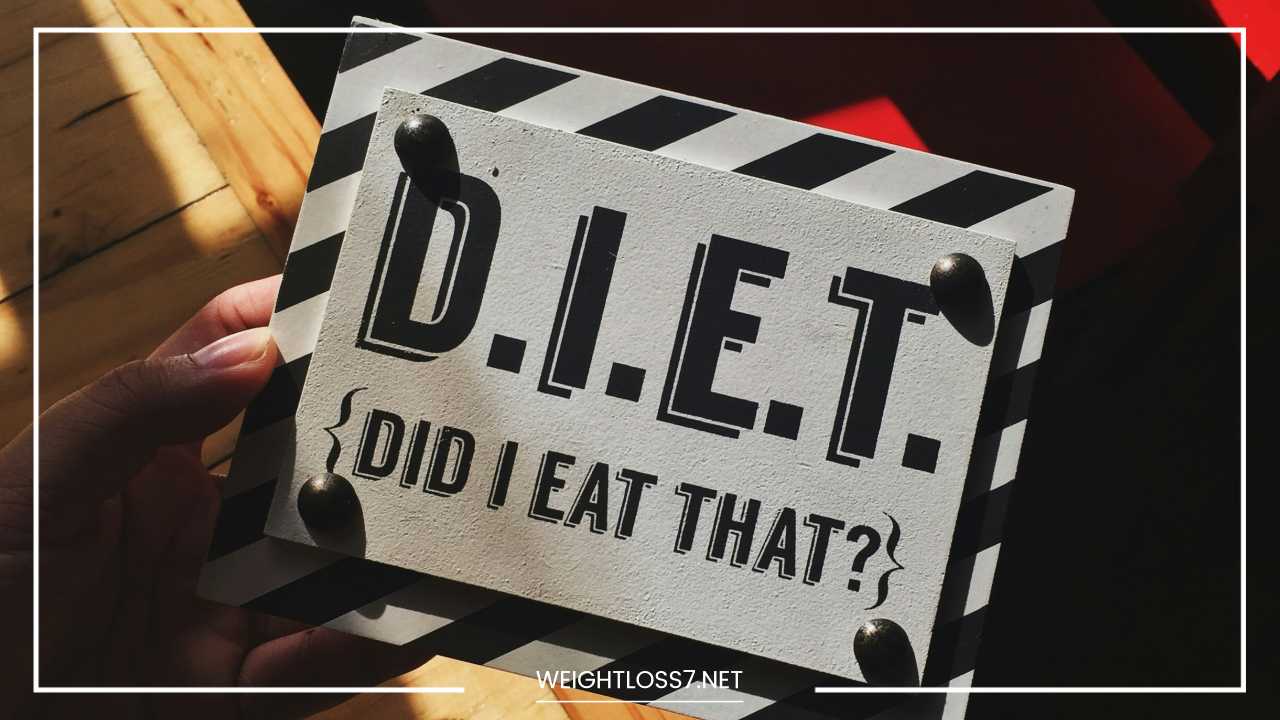Diet Myths Crushed: Fact vs. Fad for Lasting Health

Diet Myths
Diet Myths Debunked: Separating Fact from Fad
In the ever-expanding world of wellness, navigating diet advice can feel like traversing a jungle gym in a blindfold. Fads and conflicting information abound, leaving you hanging upside down, wondering what to believe.
Fear not, health warriors! This post cuts through the confusion, debunking some of the most common diet myths and setting you on the path to informed, sustainable eating – a path that’s more like a well-maintained nature trail, enjoyable and achievable.
Myth #1: Carbs are the Enemy (The Carbs Conundrum)
Carbohydrates have been demonized for their association with weight gain and a villainized character in countless diet plans.
However, carbs are the body’s primary source of energy, like the fuel that keeps your car running. The key lies in choosing the right ones. Simple carbs, found in sugary drinks and refined grains like white bread and pasta, are like pouring high-octane gasoline into your engine – they cause blood sugar spikes and crashes, leading to cravings and fatigue.
Complex carbs, like whole grains, fruits, and vegetables, are more like premium fuel – they provide sustained energy, fiber, and essential nutrients, keeping you running smoothly and for longer. So, ditch the white bread and sugary treats, and embrace the colorful world of complex carbs!
Myth #2: Fat Makes You Fat (The Truth About Dietary Fats)
Dietary fat isn’t inherently bad. In fact, healthy fats are crucial for your body’s smooth operation, like the oil that keeps the engine parts from grinding against each other.
They play a vital role in hormone regulation, brain function, and nutrient absorption. The distinction lies in the type of fat. Saturated and trans fats, found in processed meats, fried foods, and commercially baked goods, are like dirty oil – they contribute to heart disease and other health problems.
Unsaturated fats, like those in avocados, nuts, and olive oil, are more like high-quality lubricant – they offer a wealth of health benefits, reducing inflammation and promoting heart health. Focus on incorporating healthy fats into your diet while limiting saturated and trans fats.
Myth #3: Breakfast is the Most Important Meal (The Flexible Feast)
While breakfast can be a great way to jumpstart your day, it’s not mandatory for everyone. Some people thrive on intermittent fasting, where they delay eating until later in the morning, while others prefer a light morning meal.
The key is to find what works best for you and listen to your body’s hunger cues. If you do choose to eat breakfast, prioritize nutrient-rich options like yogurt with fruit and granola, or whole-wheat toast with eggs.
But remember, there’s no breakfast police – listen to your body and prioritize what fuels you best for the day ahead.
Myth #4: Snacking is Unhealthy (The Smart Snack Strategy)
Snacking gets a bad rap, but it can be a valuable tool for managing hunger and preventing overeating at mealtimes.
The trick is to choose healthy snacks that are low in calories and high in nutrients – like bite-sized allies in the fight against unhealthy choices.
Think fruits and vegetables with a dollop of hummus, a handful of nuts and seeds for a protein and healthy fat boost, or a small yogurt with berries for a sweet and satisfying option.
Avoid processed snacks loaded with sugar, unhealthy fats, and artificial ingredients – they’re more like diet saboteurs than helpful companions.
Myth #5: Detox Diets Cleanse Your Body (The Body’s Built-in Detox System)
Detox diets promise to rid your body of toxins and jumpstart weight loss. However, our bodies have efficient detoxification systems, namely the liver and kidneys. These organs naturally work to eliminate toxins, like a built-in filtration system.
Crash detox diets can be restrictive, leading to nutrient deficiencies and unhealthy eating patterns. They’re like a quick fix that doesn’t address the root cause – aim for a balanced diet rich in fruits, vegetables, and whole grains to support your body’s natural detoxification process.
Myth #6: Eating Late at Night Leads to Weight Gain (The Calorie Clock Conundrum)
The timing of your meals might influence your sleep patterns, but it doesn’t directly impact weight gain as long as your calorie intake remains consistent throughout the day.
Think of it like a bank account – calories in need to equal calories out for weight management. If a late-night snack keeps you from overeating earlier, then go for it!
However, prioritize easily digestible foods like fruits or yogurt to avoid digestive discomfort while sleeping.
Myth #7: “Diet” Foods are Always Healthy (The Deceptive Diet Food Label)
Beware the marketing ploy of “diet” foods. Often, these products are low in calories but packed with artificial sweeteners, fillers, and unhealthy fats to compensate for the lost taste. They might fit into your calorie budget, but they won’t necessarily nourish your body. They’re like a low-quality imitation of the real deal – offering a temporary illusion of health without the true benefits. Focus on consuming whole, unprocessed foods whenever possible. Think fresh fruits and vegetables, lean protein sources, and whole grains – these are the real all-stars of a healthy diet.
Myth #8: All You Need is “Calories In, Calories Out” (The Quality over Quantity Quandary)
While calorie balance plays a role in weight management, it’s not the whole picture. The quality of the calories you consume matters. Nutrient-rich foods keep you feeling fuller for longer, like a high-fiber meal that provides sustained energy. Calorie-dense, processed foods, on the other hand, are like empty calories – they leave you feeling hungry soon after, leading to cravings and overeating. Aim for a balanced diet that includes a variety of whole foods to support satiety and overall health.
Myth #9: Restrictive Diets are the Key to Long-Term Weight Loss (The Sustainable Eating Solution)
Crash diets and extreme calorie restriction might lead to initial weight loss, but they’re rarely sustainable. These restrictive plans can be demotivating and lead to yo-yo dieting, which is unhealthy and counterproductive. It’s like trying to climb a mountain in a sprint – you might get to the top quickly, but you’ll likely be exhausted and discouraged from attempting it again. Focus on developing healthy eating habits you can maintain for life, such as portion control, mindful eating, and incorporating physical activity. These are like building strong legs and learning proper climbing techniques – they’ll equip you for the long journey towards a healthier you.
Myth #10: One-Size-Fits-All Diets Exist (The Personalized Plate)
The perfect diet doesn’t exist. Individual needs and preferences vary. What works wonders for your friend might not be ideal for you. It’s like having different body types and fitness goals – a one-size-fits-all workout program wouldn’t be effective for everyone. Consider factors like allergies, dietary restrictions, and lifestyle when crafting your approach to healthy eating. Don’t be afraid to experiment and find what makes you feel your best. There’s a whole world of delicious and nutritious foods waiting to be explored – discover what works for you and create a personalized plate that fuels your body and nourishes your soul.
Remember: A sustainable, healthy approach to eating is all about balance and moderation. Don’t deprive yourself; enjoy all foods in a mindful way. Focus on incorporating a variety of nutrient-rich options into your diet, listen to your body’s cues, and find an approach that fits your lifestyle. Remember, healthy eating is a journey, not a destination. Embrace the process, celebrate your progress, and enjoy the delicious ride towards a healthier, happier you!
Additional Tips:
- Consult a Registered Dietitian: A registered dietitian can help you create a personalized plan that considers your individual needs and goals.
- Focus on Long-Term Habits: Don’t chase quick fixes. Aim for sustainable changes you can maintain for life.
- Make Small Changes: Start by making small, gradual changes to your diet. It’s easier to stick with than drastic overhauls.
- Cook More at Home: This gives you control over the ingredients and portion sizes of your meals.
- Mindful Eating: Pay attention to your hunger and fullness cues. Eat slowly and savor your food.
- Stay Hydrated: Drinking plenty of water can help you feel full and reduce cravings.
By debunking these common diet myths and adopting a balanced, sustainable approach to eating, you can achieve your health and wellness goals and feel your best!

















